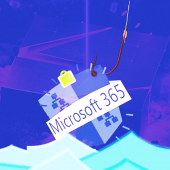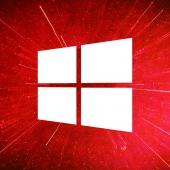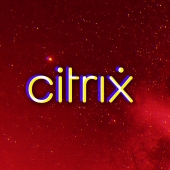-
CISA warns of critical Apache RocketMQ bug exploited in attacks
The U.S. Cybersecurity and Infrastructure Security Agency (CISA) has added to its catalog of known exploited vulnerabilities (KEV) a critical-severity issue tracked as CVE-2023-33246 that affects Apache's RocketMQ distributed messaging and streaming platform.
- September 07, 2023
- 05:51 PM
-
 0
0
-
W3LL phishing kit hijacks thousands of Microsoft 365 accounts, bypasses MFA
A threat actor known as W3LL developed a phishing kit that can bypass multi-factor authentication along with other tools that compromised more than 8,000 Microsoft 365 corporate accounts.
- September 06, 2023
- 06:33 AM
-
 2
2
-
Lapsus$ teen hackers convicted of high-profile cyberattacks
A London jury has found that an 18-year-old member of the Lapsus$ data extortion gang helped hack multiple high-profile companies, stole data from them, and demanded a ransom threatening to leak the information.
- August 23, 2023
- 06:17 PM
-
 3
3
-
New stealthy techniques let hackers gain Windows SYSTEM privileges
Security researchers have released NoFilter, a tool that abuses the Windows Filtering Platform to elevate a user's privileges to increases privileges to SYSTEM, the highest permission level on Windows.
- August 23, 2023
- 02:30 PM
-
 0
0
-
Hackers ask $120,000 for access to multi-billion auction house
Hackers have breached the network of a major auction house and offered access to whoever was willing to pay $120,000.
- August 17, 2023
- 04:17 PM
-
 1
1
-
Almost 2,000 Citrix NetScaler servers backdoored in hacking campaign
A threat actor has compromised close to 2,000 thousand Citrix NetScaler servers in a massive campaign exploiting the critical-severity remote code execution tracked as CVE-2023-3519.
- August 15, 2023
- 03:41 PM
-
 1
1
-
Over 100K hacking forums accounts exposed by info-stealing malware
Researchers discovered 120,000 infected systems that contained credentials for cybercrime forums. Many of the computers belong to hackers, the researchers say.
- August 14, 2023
- 03:22 PM
-
 1
1
-
Lapsus$ hackers took SIM-swapping attacks to the next level
The U.S. government released a report after analyzing simple techniques, e.g. SIM swapping, used by the Lapsus$ extortion group to breach dozens of organizations with a strong security posture.
- August 11, 2023
- 02:23 AM
-
 1
1
-
Microsoft Office update breaks actively exploited RCE attack chain
Microsoft today released a defense-in-depth update for Microsoft Office that prevents exploitation of a remote code execution (RCE) vulnerability tracked as CVE-2023-36884 that threat actors have already leveraged in attacks.
- August 08, 2023
- 04:15 PM
-
 0
0
-
New Downfall attacks on Intel CPUs steal encryption keys, data
A senior research scientist at Google has devised new CPU attacks to exploit a vulnerability dubbed Downfall that affects multiple Intel microprocessor families and allows stealing passwords, encryption keys, and private data like emails, messages, or banking info from users that share the same computer.
- August 08, 2023
- 01:00 PM
-
 4
4
-
Hackers can abuse Microsoft Office executables to download malware
The list of LOLBAS files - legitimate binaries and scripts present in Windows that can be abused for malicious purposes, will include the main executables for Microsoft's Outlook email client and Access database management system.
- August 03, 2023
- 11:48 AM
-
 2
2
-
P2PInfect server botnet spreads using Redis replication feature
Threat actors are actively targeting exposed instances of the Redis open-source data store with a peer-to-peer self-replicating worm with versions for both Windows and Linux that the malware authors named P2Pinfect.
- July 31, 2023
- 11:31 AM
-
 0
0
-
ALPHV ransomware adds data leak API in new extortion strategy
The ALPHV ransomware gang, also referred to as BlackCat, is trying to put more pressure on their victims to pay a ransom by providing an API for their leak site to increase visibility for their attacks.
- July 26, 2023
- 02:34 AM
-
 0
0
-
Mysterious Decoy Dog malware toolkit still lurks in DNS shadows
New details have emerged about Decoy Dog, a largely undetected sophisticated toolkit likely used for at least a year in cyber intelligence operations, relying on the domain name system (DNS) for command and control activity.
- July 25, 2023
- 12:44 PM
-
 0
0
-
Netscaler ADC bug exploited to breach US critical infrastructure org
The US government is warning that threat actors breached the network of a U.S. organization in the critical infrastructure sector after exploiting a zero-day RCE vulnerability currently identified as CVE-2023-3519, a critical-severity issue in NetScaler ADC and Gateway that Citrix patched this week.
- July 21, 2023
- 08:51 AM
-
 0
0











.png)



